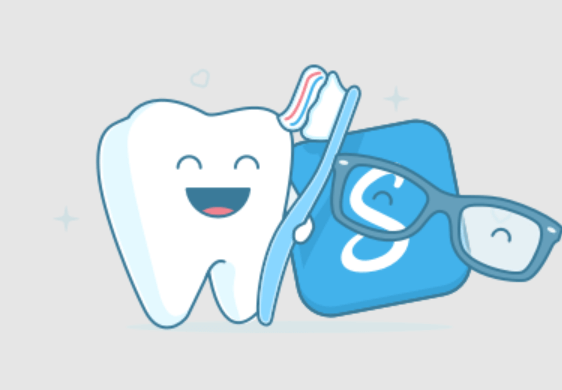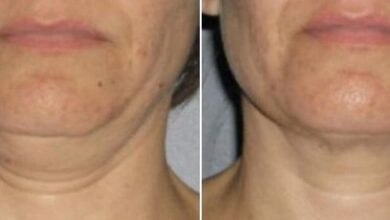Dental and Eye Insurance: A Comprehensive Guide

In a world where health is a top priority, dental and eye insurance play a crucial role in maintaining overall well-being. These specialized insurance plans offer coverage for dental procedures and eye care services, ensuring that individuals can access necessary treatments without bearing the full financial burden.
Types of Dental Insurance
Dental insurance comes in various forms, catering to different needs. Basic dental coverage usually includes routine check-ups and cleanings, while major dental coverage extends to more complex procedures like root canals and extractions. Orthodontic coverage is designed for those needing braces or other orthodontic interventions, while cosmetic dental coverage addresses elective procedures to enhance appearance.
Benefits of Dental Insurance
The emphasis on preventive care. Regular check-ups and cleanings are often fully covered, encouraging individuals to maintain optimal oral health. Additionally, having dental insurance can result in significant cost savings for more extensive procedures, promoting timely intervention and reducing the risk of complications.
Types of Eye Insurance
Eye insurance, on the other hand, focuses on vision-related services. May contribute to the cost of prescription eyewear. Medical eye insurance is designed for the treatment of eye diseases and conditions, while vision discount plans offer reduced rates on vision care services.
Importance of Eye Insurance
Regular eye exams are essential for detecting potential issues early on, making eye insurance a valuable investment. Coverage for vision correction procedures, such as LASIK or cataract surgery, ensures that individuals can access advanced treatments without a significant financial burden.
Comparing Dental and Eye Insurance
While dental and eye insurance serve different purposes, there are commonalities in coverage. Both emphasize preventive care, and some plans may include a network of providers for greater accessibility. Understanding the differences and similarities is crucial for individuals seeking comprehensive coverage for both dental and eye health.
Choosing the Right Insurance Plan
Those with specific dental concerns may prioritize plans offering comprehensive coverage for orthodontics or cosmetic procedures. Researching provider networks ensures that chosen professionals are covered, and balancing affordability with coverage limits is key.
Common Misconceptions about Dental and Eye Insurance
Dispelling myths is essential to help individuals make informed decisions. Contrary to popular belief, insurance may not cover all dental or eye procedures, and it’s not limited to emergency situations. Educating consumers about these misconceptions promotes a better understanding of the scope and benefits of dental and eye insurance.
Tips for Maximizing Insurance Benefits
To maximize the benefits of insurance, individuals should schedule regular check-ups, take advantage of preventive services, and have a clear understanding of policy details. Proactive engagement with insurance coverage ensures that individuals make the most of their plans and maintain optimal oral and visual health.
The Future of Dental and Eye Insurance
As technology advances, dental and eye insurance are likely to evolve. Trends in coverage may include innovative treatments and expanded preventive measures. Individuals looking to benefit from the latest advancements in dental and eye care. Read more…
Real-life Stories: How Insurance Made a Difference
Sharing real-life stories highlights the practical impact of dental eye insurance. Personal experiences of individuals who successfully navigated dental procedures or received critical eye care through insurance underscore the tangible benefits of having coverage.
FAQs about Dental and Eye Insurance
- What does basic dental coverage include?
- Basic dental coverage typically includes routine check-ups, cleanings, and X-rays. Some plans may also cover basic procedures like fillings.
- How often should I have an eye exam?
- It is recommended to have an eye exam at least once a year, even if you don’t experience vision problems. Regular exams help detect issues early on.
- Can I use my dental insurance for cosmetic procedures?
- Cosmetic procedures are often elective and may not be fully covered by dental insurance. It’s essential to check the policy details for specific coverage.
- Is vision insurance necessary if I don’t wear glasses?
- Yes, vision insurance is still valuable for those not wearing glasses. It covers routine eye exams and can contribute to the cost of prescription eyewear.
- How do I file a claim for dental or eye care services?
- To file a claim, contact your insurance provider for specific instructions. Typically, you’ll need to submit receipts and details of the services received.
Conclusion
In conclusion, dental and eye insurance are integral components of comprehensive healthcare. By understanding the types of coverage, benefits, and how to choose the right plan, individuals can proactively manage their oral and visual health. Exploring insurance options ensures access to quality care, contributing to a healthier and more fulfilling life.




